
GA4GH announces refget Sequence Collections
The new GA4GH refget Sequence Collections helps streamline reference genome management.
2025
technology-and-innovation

The new GA4GH refget Sequence Collections helps streamline reference genome management.
2025
technology-and-innovation

Jo McEntyre will become Interim Director of EMBL-EBI as Ewan Birney takes up the role of EMBL Executive Director.
2025
announcements
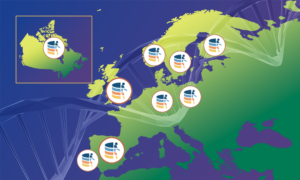
The Federated European Genome-phenome Archive (FEGA) has expanded its network and continues to evolve by embracing emerging technologies.
SCIENCE & TECHNOLOGY2025
science-technologytechnology-and-innovation

EMBL-EBI’s new Head of IT and Technical Services (ITS) Operations will strengthen collaborative systems across EMBL and explore our use of cloud-hosting solutions.
PEOPLE & PERSPECTIVES2025
people-perspectivesperspectives

The Solve-RD project standardises genomic and clinical data across Europe to support rare disease research.
EMBL ANNOUNCEMENTS2025
announcementsembl-announcements
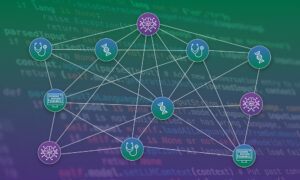
Introducing an open-source large language model (LLM) framework designed for custom biomedical research.
SCIENCE & TECHNOLOGY2025
research-highlightsscience-technology

Study identifies a novel mechanism driving osteosarcoma and provides insights to help predict patient outcomes.
SCIENCE & TECHNOLOGY2025
research-highlightsscience-technology
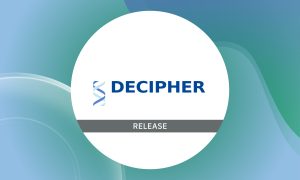
The v11.29 DECIPHER release is out now. Find out about the new features and improvements.
2025
updates-from-data-resources

EMBL-EBI's new Functional Genomics Team Leader will develop standards for new data types and integrate AI into workflows.
PEOPLE & PERSPECTIVES2024
people-perspectivesperspectives

The most comprehensive map of the developing human thymus sheds light on how immune responses are built and maintained during early life
2024
announcements

Public Engagement Officer Briony Jackson is building lasting relationships with local communities to make science accessible and engaging for all.
PEOPLE & PERSPECTIVES2024
people-perspectivesperspectives

Researchers uncover that DNA changes that cause cancer drug resistance can be grouped into four categories, and identify possible new therapeutic targets.
2024
announcements
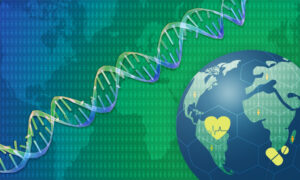
Addition of data from more diverse populations to the Polygenic Score (PGS) Catalog and a new software tool for PGS calculation could help produce more equitable disease risk predictions.
SCIENCE & TECHNOLOGY2024
science-technologytechnology-and-innovation
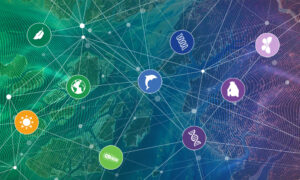
EMBL-EBI data resources help advance biodiversity and climate change research by enabling scientists to study species interactions, evolutionary processes, ecosystem health, and more.
SCIENCE & TECHNOLOGY2024
science-technologytechnology-and-innovation

EMBL-EBI’s new Head of Applications will use his expertise in cloud infrastructure and security to support the institute’s open data resources.
PEOPLE & PERSPECTIVES2024
people-perspectivesperspectives

Kim Gurwitz talks about her role as Scientific Training Lead at EMBL-EBI and how collaborative projects for bioinformatics training support researchers and service providers in making the most of publicly available data.
PEOPLE & PERSPECTIVES2024
people-perspectivesperspectives
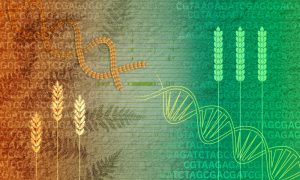
Researchers explore genetic diversity found in ancient environmental DNA to help modern agricultural practices.
EMBL ANNOUNCEMENTS2024
announcementsembl-announcements
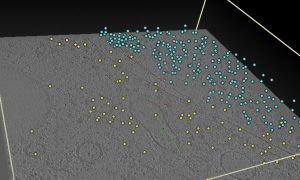
Data obtained through cryogenic sample electron tomography (cryo-ET) are openly available in the new Electron Microscopy Public Image Archive (EMPIAR) cryo-ET tomography browser.
EMBL ANNOUNCEMENTS2024
announcementsembl-announcements
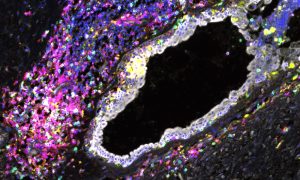
New study uncovers the potential of immunotherapy in preventing breast cancer and creates the openly available Human Breast Cell Atlas.
SCIENCE & TECHNOLOGY2024
research-highlightssciencescience-technology

AI annotations added to the SureChEMBL database increase the depth of data made available to users.
2024
sciencetechnology-and-innovation
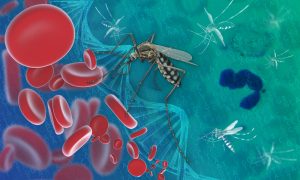
Plasmodium falciparum, a malaria parasite, uses gene conversion to produce genetic diversity in two surface protein genes targeted by the human immune system.
SCIENCE & TECHNOLOGY2024
announcementssciencescience-technology

An international team of researchers aim to combine social determinants of health with genomics, immune profiling, and exposomics data to tackle cancer inequities at an unprecedented scale.
SCIENCE & TECHNOLOGY2024
announcementssciencescience-technology

Kyle Morris joins EMBL-EBI as Electron Microscopy Data Bank (EMDB) Team Leader.
LAB MATTERSPEOPLE & PERSPECTIVES2024
lab-matterspeople-perspectives

Streamlining proteomics data access for machine learning applications.
2024
sciencetechnology-and-innovation
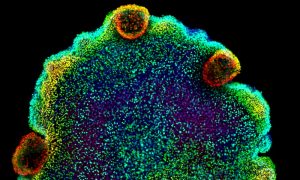
A $3.8 million grant from the Gordon and Betty Moore Foundation will help researchers lay groundwork for the Biodiversity Cell Atlas.
2024
announcements
Researchers reveal that healthy lung development hinges on immune-epithelial crosstalk, with implications for respiratory diseases.
SCIENCE & TECHNOLOGY2023
research-highlightsscience-technology
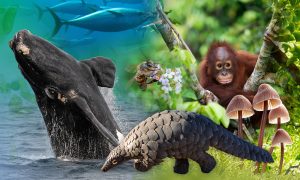
The new initiative brings together genomic data from various biodiversity projects to aid conservation and biodiversity efforts.
SCIENCE & TECHNOLOGY2023
announcementssciencescience-technology

Leading charities Children with Cancer UK and Cancer Research UK will co-fund a major £5.5 million research programme to advance precision medicine for relapsed childhood cancers.
2023
announcements

Large language models are changing the way we carry out scientific data curation, annotation, and research, setting the stage for a more efficient understanding of scientific literature
2023
technology-and-innovation

Large language models are changing the way we carry out scientific data curation, annotation, and research, setting the stage for a more efficient understanding of scientific literature
EMBLetc2023

PhD student Valentina Lorenzi is using single-cell sequencing data to create a map of the developing human reproductive system.
LAB MATTERSPEOPLE & PERSPECTIVES2023
lab-matterspeople-perspectivesperspectives

David Hulcoop discusses how his experience bridging organisational cultures will help address critical challenges in drug discovery and target selection at Open Targets.
LAB MATTERSPEOPLE & PERSPECTIVES2023
announcementslab-matterspeople-perspectives

New research improves understanding of the molecular mechanisms behind why some cancers respond to immunotherapy and others don't.
SCIENCE & TECHNOLOGY2023
research-highlightssciencescience-technology
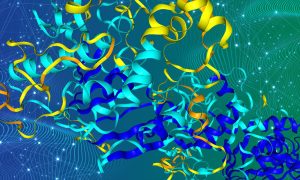
Researchers use the AlphaFold database and Foldseek Cluster algorithm to analyse millions of predicted protein structures and offer new insights into protein evolution.
SCIENCE & TECHNOLOGY2023
research-highlightssciencescience-technology

EMBL-EBI’s Deputy Head of Research Virginie Uhlmann delves into the institute’s unique research landscape and the essential qualities for effective leadership in this field
2023
perspectives

Experience in data management and coordination has enabled EMBL alumna Laura Clarke to pursue a career in AI development.
PEOPLE & PERSPECTIVES2023
people-perspectivesperspectivesscience

By upskilling researchers on bioinformatics skills and tools, EMBL alumna Emily Perry is helping to make genomic medicine more accessible.
LAB MATTERSPEOPLE & PERSPECTIVES2023
lab-matterspeople-perspectivesperspectives
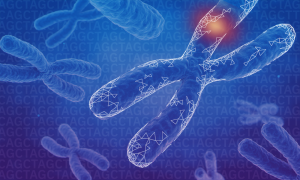
Closer collaborations with EMBL-EBI data resources set to further develop and grow this unique rare disease platform.
EMBL ANNOUNCEMENTS2023
announcementsembl-announcementsscience

Wolfgang Huber discusses why research assessment needs reform and how this could make science more diverse, more inclusive, and better
LAB MATTERSPEOPLE & PERSPECTIVES2023
lab-matterspeople-perspectives

In recognition of Janet Thornton’s retirement, we look back at some of her biggest accomplishments shaping the field of bioinformatics.
LAB MATTERSPEOPLE & PERSPECTIVES2023
announcementslab-matterspeople-perspectives

In recognition of Janet Thornton’s retirement, we look back at some of her biggest accomplishments in shaping the field of bioinformatics.
EMBLetc2023

The human pangenome – one of the most complete collections of genome sequences released so far – captures rich human diversity.
SCIENCE & TECHNOLOGY2023
announcementssciencescience-technology

EMBL-EBI researchers have developed a new tool capable of performing state-of-the-art phylogenetic inference on larger datasets than previously thought possible.
SCIENCE & TECHNOLOGY2023
research-highlightssciencescience-technology
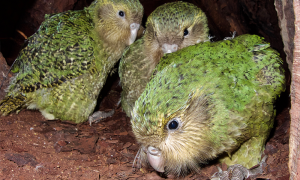
Using long-read sequencing and machine learning approaches, EMBL alumna Lara Urban is making a difference in the field of One Health.
2023
perspectives
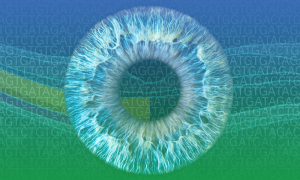
EMBL-EBI researchers use UK Biobank data to uncover new information about rare diseases of the eye.
2023
research-highlightsscience

Meet some of our equality, diversity, and inclusion champions and find out how they’re making EMBL-EBI a better place to work
2023
announcements

The Single Cell Expression Atlas (SCEA) now includes more datasets and species.
2023
updates-from-data-resources

Funding awarded for developing tools to harness marine microbiome data for biotechnological applications and ecosystem services.
2023
announcementsscience
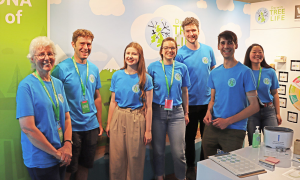
We look back through some of the 2022 highlights from the Darwin Tree of Life project.
SCIENCE & TECHNOLOGY2023
perspectivessciencescience-technology

Rob Finn, one of the co-chairs of the Microbial Ecosystems theme, discusses his work, the challenges of multidisciplinary research, and how the theme is already helping to promote the exchange of scientific ideas.
LAB MATTERSPEOPLE & PERSPECTIVES2023
lab-matterspeople-perspectives
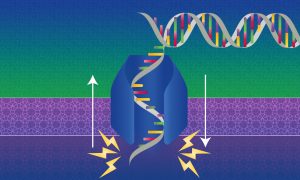
A new method developed by EMBL-EBI researchers helps to streamline nanopore sequencing in real-time.
SCIENCE & TECHNOLOGY2023
research-highlightssciencescience-technology

Open data resources that enable global research and development recognised by the Global Biodata Coalition.
2022
announcementsscience

An ambitious project to sequence the genomes of all known species of euglenoids will drive research on biofuels and sustainable foods.
2022
announcements

Our experts discuss the importance of open science for food security and preserving global biodiversity.
2022
perspectivesscience
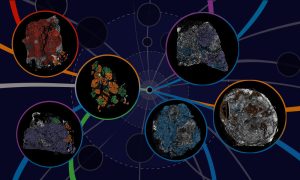
Researchers have created a tool that maps in previously unseen detail how breast cancer develops and spreads.
2022
research-highlightsscience

Researchers across EMBL are helping to make artificial intelligence (AI) models for bioimaging analysis interoperable and openly available to the scientific community.
2022
announcementsscience
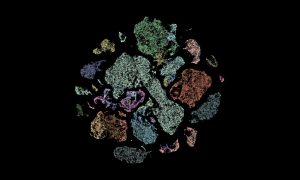
NIH BRAIN Initiative to fund brain atlases, network coordination, and knowledge sharing to explore brain function research.
2022
announcementsscience
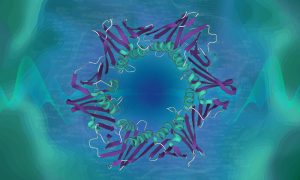
Over 40 million protein annotations have been added to the UniProt database using a Google Research natural language processing model.
2022
technology-and-innovation
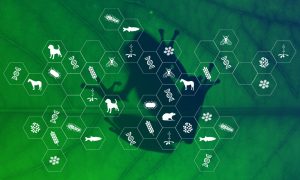
European experts gather to launch a project that aims to characterise and conserve life on Earth using DNA data.
2022
announcementsscience

The Royal Microscopical Society recognises Ardan Patwardhan’s contributions to the field of electron microscopy.
2022
announcements

Ewan Birney, Deputy Director General of EMBL and Director of EMBL-EBI, reveals the key factors that enabled AlphaFold to change the world of biology.
PEOPLE & PERSPECTIVES2022
people-perspectivesperspectivesscience
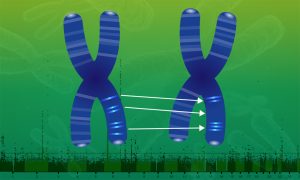
A new method for the robust analysis of copy number variation and used UK Biobank data to identify links between genome and disease.
SCIENCE & TECHNOLOGY2022
research-highlightssciencescience-technology

InterPro version 90.0 and InterProScan 5.57-90.0 are now available. InterPro now features hundreds of new methods integrated from partner databases, and InterProScan draws on over 40000 entries
2022
updates-from-data-resources
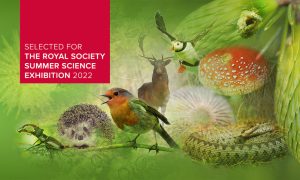
A closer look at how genome sequencing is helping us protect biodiversity and our latest public engagement activities
2022
announcements

On 30 September 2022 the ArrayExpress interface will close. All datasets have now been migrated from ArrayExpress into the BioStudies ArrayExpress collection
2022
updates-from-data-resources
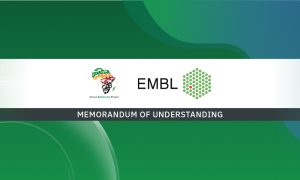
The African BioGenome Project and EMBL have signed a Memorandum of Understanding to support each other in building genomics and bioinformatics capacity across Africa
CONNECTIONSLAB MATTERS2022
announcementsconnectionslab-matters
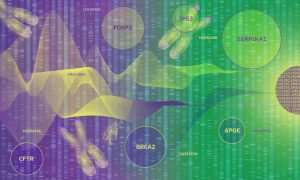
Researchers in the Ensembl team are making the most of machine learning methods to speed up genome annotation pipelines
SCIENCE & TECHNOLOGY2022
sciencescience-technologytechnology-and-innovation

Fergal Martin discusses the importance of open access data and his work in different biodiversity initiatives
LAB MATTERSPEOPLE & PERSPECTIVES2022
lab-matterspeople-perspectives

How text mining collaborations benefit our research, data resources, and the wider scientific community.
SCIENCE & TECHNOLOGY2022
sciencescience-technologytechnology-and-innovation

2.4 billion protein sequences are now available in the latest MGnify release including new annotations provided by Google AI
2022
updates-from-data-resources

Peter Harrison discusses the importance of data accessibility and his passion for biodiversity and agricultural genomics.
LAB MATTERSPEOPLE & PERSPECTIVES2022
lab-matterspeople-perspectives

Ewan Birney discusses the input of both genetics and our environment in making us who we are
LAB MATTERS2022
lab-mattersperspectives
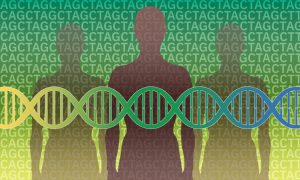
Researchers from the MANE collaboration bring you the most comprehensive human genome annotation dataset to date.
SCIENCE & TECHNOLOGY2022
research-highlightssciencescience-technology

John Lees joins EMBL-EBI as a Group Leader in Pathogen informatics and modelling.
LAB MATTERSPEOPLE & PERSPECTIVES2022
lab-matterspeople-perspectives
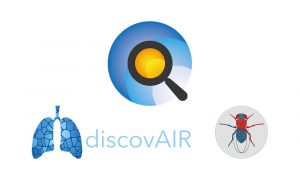
The latest Single Cell Expression Atlas (SCEA) release is here and features collaborations with DiscovAIR and the Fly Cell Atlas
2022
updates-from-data-resources

Zamin Iqbal and his team are working with researchers all over the globe to help put a stop to Tuberculosis
SCIENCE & TECHNOLOGY2022
perspectivessciencescience-technology
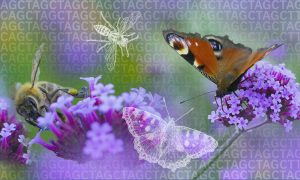
Our researchers highlight their contributions to the Darwin Tree of Life project and how new genome annotations helps to further biodiversity research
SCIENCE & TECHNOLOGY2022
announcementssciencescience-technology
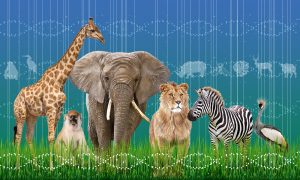
The African BioGenome Project aims to safeguard biodiversity and build bioinformatics capacity across Africa
SCIENCE & TECHNOLOGY2022
perspectivessciencescience-technology
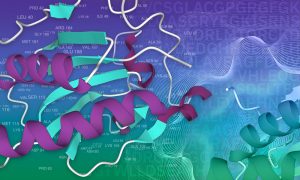
Deep learning models can improve protein annotations and has helped expand the Pfam database.
SCIENCE & TECHNOLOGY2022
perspectivessciencescience-technology
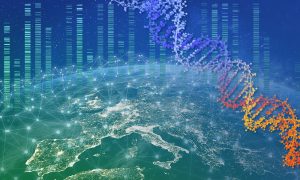
On track to reach an ambitious goal of 3,000 genomes sequenced by the end of 2022, what’s next for the Earth Biogenome Project?
SCIENCE & TECHNOLOGY2022
announcementssciencescience-technology

Melissa Harrison joins EMBL-EBI as the new Team Leader of Literature Services. We found out more about her plans for open access publishing and Europe PMC.
LAB MATTERSPEOPLE & PERSPECTIVES2022
lab-matterspeople-perspectives
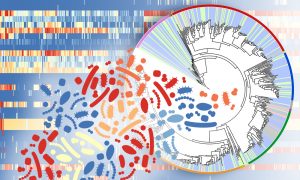
Researchers have identified hundreds of new bacterial species and viruses in the human skin microbiome.
SCIENCE & TECHNOLOGY2022
sciencescience-technology
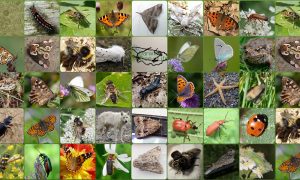
A look back at some of the 2021 highlights from the Darwin Tree of Life partner institutes.
SCIENCE & TECHNOLOGY2021
sciencescience-technology
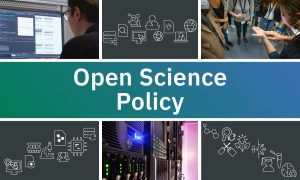
EMBL announces the release of its new Open Science Policy, contributing to positive culture change across the life sciences.
LAB MATTERS2021
lab-matters

Tudor Groza joins EMBL-EBI as our new Phenomics Team Lead. We found out from Tudor exactly what this new role will entail
LAB MATTERSPEOPLE & PERSPECTIVES2021
lab-matterspeople-perspectives
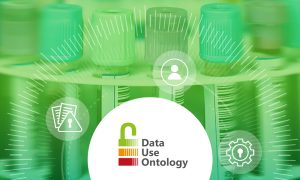
The GA4GH Data Use Ontology (DUO) supports a data authorisation and access framework to streamline consent to use biomedical data
SCIENCE & TECHNOLOGY2021
sciencescience-technology

The BY-COVID project aims to make infectious disease data, including COVID-19, openly available to everyone.
SCIENCE & TECHNOLOGY2021
sciencescience-technology
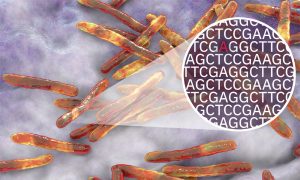
Profiling M. tuberculosis strains from 27 countries to reveal causes of drug resistance.
SCIENCE & TECHNOLOGY2021
sciencescience-technology
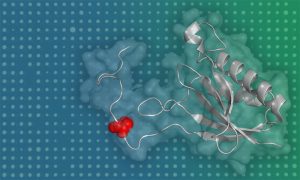
Researchers develop a new high-throughput approach to assess the functional significance of protein phosphosites.
SCIENCE & TECHNOLOGY2021
sciencescience-technology

Hundreds of school children explore the beauty of proteins through art
LAB MATTERS2021
lab-matters
3D-Beacons Network acts as a one-stop shop for protein structures by combining and standardising data from several providers.
CONNECTIONS2021
connectionsscience

Researchers have combined spatial gene expression information with single-cell genomics data to create a high-resolution atlas of mouse organogenesis.
SCIENCE & TECHNOLOGY2021
sciencescience-technology
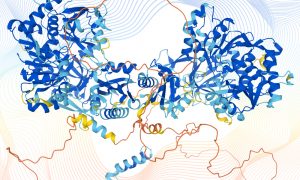
Partners use AlphaFold, the AI system recognised last year as a solution to the protein structure prediction problem, to release more than 350,000 protein structure predictions including the entire human proteome to the scientific community.
SCIENCE & TECHNOLOGY2021
sciencescience-technology

EMBL welcomes Sarah Dyer, the new Non-Vertebrate Genomics Team Leader at EMBL-EBI.
LAB MATTERSPEOPLE & PERSPECTIVES2021
lab-matterspeople-perspectives

New software enables scientists to visualise RNA secondary structures using the world’s largest RNA structure dataset.
SCIENCE & TECHNOLOGY2021
sciencescience-technology

John Marioni, Alex Bateman, and Takashi Hiiragi have been elected to EMBO Membership.
EMBL ANNOUNCEMENTSLAB MATTERS2021
embl-announcementslab-matters

The largest in-depth analysis of genomic surveillance data mapping out the dynamics of 62 lineages of the SARS-CoV-2 virus.
SCIENCE & TECHNOLOGY2021
sciencescience-technology
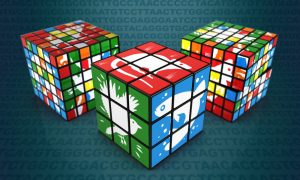
Researchers reveal the best technology for assembling reference genomes.
SCIENCE & TECHNOLOGY2021
sciencescience-technology

Researchers have used a metagenomics approach to piece together the genomes of yeasts found in wild lichens.
SCIENCE & TECHNOLOGY2021
sciencescience-technology

Scientists from the CABANA project explore how open data is benefiting global research efforts.
CONNECTIONS2021
connectionsscience

Researchers use large-scale human genetic studies to identify drug targets important for managing COVID-19 in its early stages
SCIENCE & TECHNOLOGY2021
sciencescience-technology

Researchers have used human medical and genetic data from UK Biobank to investigate the genetics of age-related diseases
SCIENCE & TECHNOLOGY2021
sciencescience-technology

Professor Dame Janet Thornton discusses work–life balance, the support she has received during her career, and how organisations can help staff during the COVID-19 pandemic
LAB MATTERS2021
lab-matters

A new lineage of coronavirus was first identified in the UK, but why is it spreading much more rapidly within the population?
SCIENCE & TECHNOLOGY2021
sciencescience-technology

Despite restrictions, 2020 has been a busy year for the Darwin Tree of Life Project. We take a look at some of this year’s achievements and highlights.
SCIENCE & TECHNOLOGY2020
sciencescience-technology

Open access data benefits millions of scientists around the world and is essential for a rapid response to the COVID-19 pandemic.
SCIENCE & TECHNOLOGY2020
sciencescience-technology
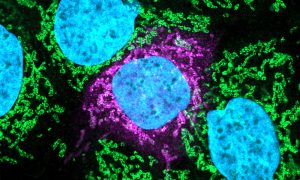
Scientists from the Beltrao Group at EMBL-EBI and collaborators identified drug targets common to SARS-CoV-2, SARS-CoV-1, and MERS-CoV, three pathogenic coronaviruses. They also found potential drugs that could be repurposed as COVID-19 treatments, and against emerging coronavirus strains in the…
SCIENCE & TECHNOLOGY2020
sciencescience-technology

EMBL-EBI set to launch European COVID-19 Data Platform to help store, share, and analyse research data linked to the COVID-19 pandemic.
SCIENCE & TECHNOLOGY2020
sciencescience-technology
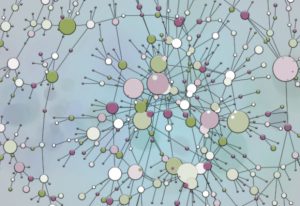
The largest and most comprehensive catalogue of cancer-specific RNA alterations reveals new insights into the cancer genome.
SCIENCE & TECHNOLOGY2020
sciencescience-technology

Researchers at EMBL’s European Bioinformatics Institute (EMBL-EBI) and the Francis Crick Institute have analysed the whole genomes of over 2600 tumours from 38 different cancer types to determine the chronology of genomic changes during cancer development.
SCIENCE & TECHNOLOGY2020
sciencescience-technology
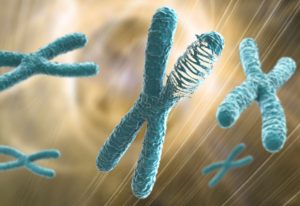
Researchers at Harvard Medical School and EMBL-EBI have carried out the largest analysis across cancer types of the newly discovered mutational phenomenon chromothripsis.
SCIENCE & TECHNOLOGY2020
sciencescience-technology
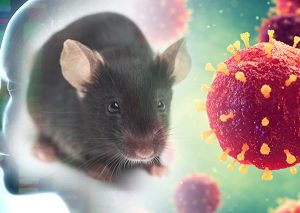
New resource that categorises genes essential for supporting life could be used to identify rare disease mutations
SCIENCE & TECHNOLOGY2020
sciencescience-technology

Dame Janet Thornton presents the 2019 EMBL Insight Lecture: Ageing and disease – what is the link?
SCIENCE & TECHNOLOGY2020
eventsscience-technology

Resource has implications for disease research
SCIENCE & TECHNOLOGY2019
sciencescience-technology
No matching posts found